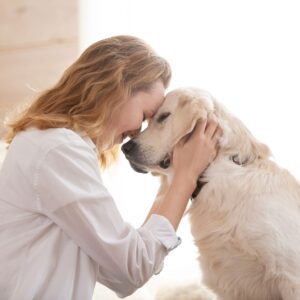Ok, let’s be frank, but fair. There were thousands of people who saw 2020’s lockdown as the perfect time to finally welcome a pup or rescue dog into their homes. There were many extremely lonely and disconnected people who needed companionship, and many families who had always wanted to get a dog, but struggled with the necessary time resources required to bed in a new furry family member. Many found a silver lining to the stormcloud of the pandemic and thus the puppy boom of 2020 ensued.
In theory, it was a great idea. The fact that the majority of us were stuck inside our houses with plenty of time on our hands meant that we could feasibly be very present for that all-important bonding phase and toilet training. The reality is now much more complex and littered with unexpected drawbacks.
According to Kennel Club , post-panedemic, 1 in 4 people who bought puppies during lockdown now admit that they were “impulse purchases”. This has resulted in a generation of “pandemic pups” who, through no fault of their own, have found themselves in the hands of inexperienced dog owners who had no real long term plan for their pooch once pre-covid life resumed.
Now the novelty of extortionate doggy baskets and personalised collars has worn off, what the pandemic actually left us with was pre-adolescent dogs with unprecedented behavioural problems that were not only unsocialised with humans and other dogs, but also who are suffering terribly with separation anxiety. Furthermore, new dog owners are finding juggling work, family and social life particularly difficult around the extra responsibility of caring for a dog.
Not only this, but The Royal College of Vets has reported concerns over the general health welfare of pandemic puppies, due to questionable breeding and buying practices where well-meaning would-be dog owners have been duped into purchasing puppies from opportunist illegal importers and puppy farms.
And it’s not just the dogs who are suffering.
There is now a wave of new mental health problems of dog owners battling with their decision to bring a dog into their life. A study at the University of York suggested that whilst for many, pet companionship was beneficial to individual’s mental and physical health, the opposite effect was also true. Pets are said to also exacerbate feelings of guilt and excessive worry for more attached and nervous dog owners.
As reported by Dog’s Trust, this lack of preparation and understanding has seen a startling 41% increase in web traffic to its “Giving Up Your Dog” page.
But before the rescue homes get full to breaking point and are resorted to the unspeakable, let’s talk about a few easy ways that can help relationships with our dogs:
Counterconditioning – a technical way of saying “turn a negative experience to a positive”. Leaving your pet with a highly stimulating treat is a great way of expelling their fears. For example, something like a KONG with frozen peanut butter in is super tasty and takes a long time to finish. Make sure you take it away when you get home so your dog knows that they only get such a special treat when they are alone.
Create a “safe-space”. Many new dog owners shudder at the thought of a crate, but the truth is most dogs love them! They can have nice soft bedding inside and their favourite toys, as well as something that smells of you (if you are ready to part with it!) Crates should never ever be used as punishment or you really will defeat the object.
Use a calming health supplement to take the edge off their anxiety and produce calming effects.
We discuss separation anxiety in more depth in our blog on how to manage with separation anxiety
If any of this applies to you and you are in need of help – seek out a professional dog behaviourist, see our list of accredited dog specialists on our directory to find the best one for you.









Add a comment